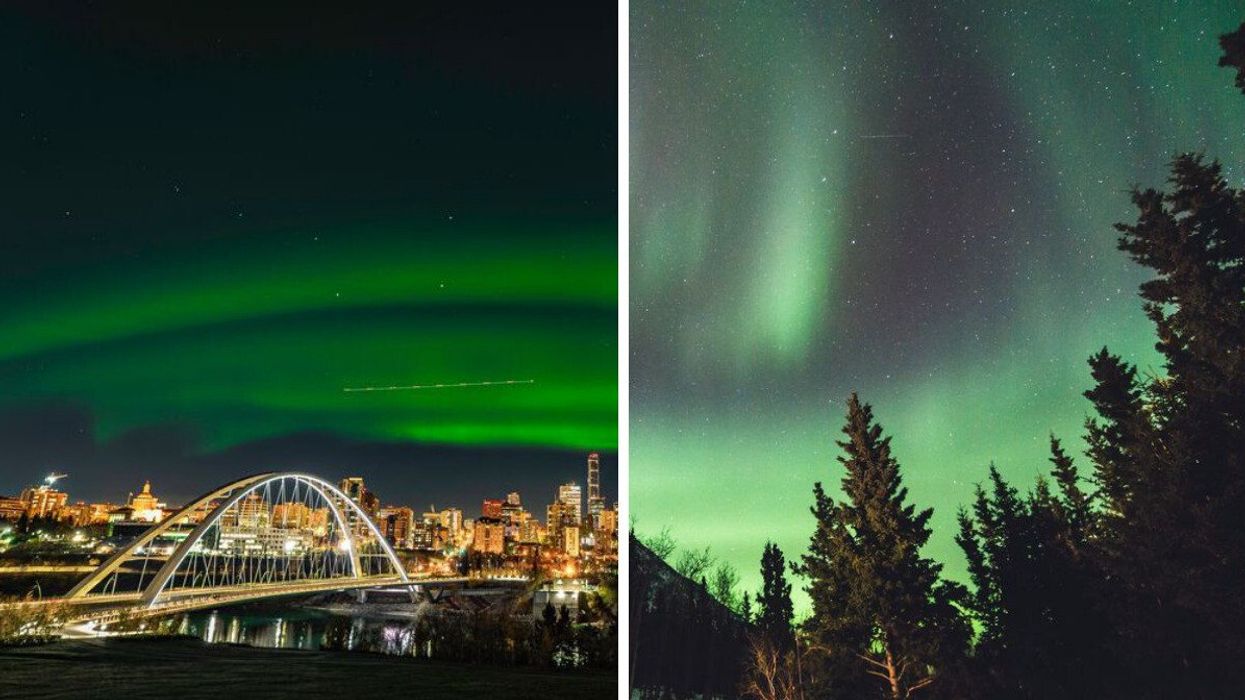The Northern Lights Might Be Seen Across Southern Canada On Sunday & You Won't Want To Miss It
Keep your eyes on the sky!

The Northern lights over Edmonton. The Northern lights in Yukon.
The northern lights could be treating parts of Canada to a spectacular show shortly!
Parts of B.C., Alberta, Saskatchewan, Manitoba, Ontario and Quebec should be able to see the aurora borealis dancing across the sky during the evening of Sunday, April 23, according to a forecast from The National Oceanic and Atmospheric Administration's Space Weather Prediction Center.
NOAA's forecast includes a "view line" where areas that are in the red category north of the demarcation have a high likelihood of witnessing the natural phenomenon. For tonight, Toronto, Calgary and Vancouver are all within range to be able to see the aurora.
According to The Weather Network, the lights will be visible due to the edge of a "plasma cloud" sweeping past our planet, which might cause "a disturbance in Earth's geomagnetic field."
"The resulting geomagnetic storm is forecast to be minor, although it could reach moderate levels late Sunday night or very early Monday morning," says TWN. "As a result, we could see auroras farther south than usual."
In terms of viewing, NOAA advises that auroras can "often be observed somewhere on Earth from just after sunset or just before sunrise," with no possibility of viewing them during daylight hours.
"The aurora does not need to be directly overhead but can be observed from as much as a 1,000 km away when the aurora is bright and if conditions are right," they explain.
The Canadian Space Agency also has some advice for those looking to see the lights, noting that you "don't need any special equipment to see auroras, just a healthy dose of enthusiasm!"
If you live in a city, you might want to travel somewhere a little more remote as light pollution can make low-intensity auroras invisible.
They also say that the northern lights are at their most intense peak during midnight, so you might have to stay up late to get the best view!
This article's cover image was used for illustrative purposes only.